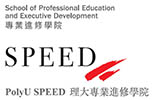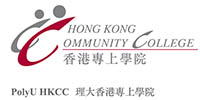雙語社評齊齊聽
[英語 (足本收聽)] Presented by CHAN, Ka-ling Zoe, Lecturer of Hong Kong Community College, The Hong Kong Polytechnic University
[普通話 (足本收聽)] Presented by Dr QIU, Wei Tina, Lecturer of Hong Kong Community College, The Hong Kong Polytechnic University
As the number of Hongkongers moving abroad increases, its impact is gradually emerging. Meanwhile, the Greater Bay Area is actively encouraging young people from Hong Kong to travel northward to develop their careers there, and is determined to set up more universities. Shanghai is also relaxing its policy for talent settlement.
Talents that have moved overseas include people who have accumulated a considerable amount of work experience and have thus become the backbone of all kinds of industries as well as primary and secondary school students. The University of Hong Kong (HKU) has lowered its admission standards this year. Candidates who have failed either the Chinese or the English subject will still have the chance to apply for a place in the university. The impact of brain drain cannot be underestimated.
In the meantime, China's Ministry of Education has recently announced that it has approved the establishment of the Hong Kong University of Science and Technology (HKUST) (Guangzhou). City University (Dongguan) has also gotten the green light to start preparing for its establishment. The Shenzhen Qianhai Authority has signed an agreement with HKU to cooperate in nurturing talent. Together with the Beijing Normal University-Hong Kong Baptist University United International College and the Chinese University of Hong Kong (Shenzhen), which have been established for 15 and 8 years respectively, Hong Kong tertiary institutions already have — or will have — five branches altogether in the Greater Bay Area. In recent years, the Greater Bay Area has also been determined to establish more universities. With its 38 universities, Guangzhou has leaped up the ladder to become the city with the fifth greatest number of universities in China. As for Shenzhen, it has built four universities over the past ten years, while Dongguan and Foshan have also opened three and two universities respectively.
Universities in the Greater Bay Area that are jointly run by the mainland and Hong Kong are all targeting Hong Kong's advantages, adopting Hong Kong's management model and leveraging university subjects where Hong Kong enjoys an advantage. The first batch of undergraduate major programmes opened by HKUST in its Nansha, Guangzhou campus are about artificial intelligence, data science and big data technology, intelligent manufacturing engineering, etc. There are also 15 major programmes for research institutes, including those about advanced materials, intelligent transportation, microelectronics, etc. The fields that Shenzhen requires HKU to jointly offer include law, financial technology, entrepreneurial practice, carbon neutrality, cutting-edge technology industries, etc. The Shenzhen Lomonosov Moscow State University (MSU)-Beijing Institute of Technology (BIT) University adopts Russian as the medium of instruction to nuture talent for the Belt and Road Initiative.
It is a common international practice to use proactive measures to compete for talent. Shanghai recently announced that it will change its past screening method so as to grant Shanghai household registration to all graduates of that year's master's and doctor's programmes in the city's universities. Although Shanghai has a population of 25 million and implements the national policy on limiting population expansion in megacities, it has spared no effort in attracting talent and is attracting highly educated talent in a targeted manner. This will not only alleviate potential worries about a drop in the labour force proportion of the city's population, but also optimise the population structure.
Hong Kong is already facing a brain drain, and there is an urgent need to replenish the highly educated population. In an era of intense competition for talent, countries and cities with enterprise are stepping up their efforts in a targeted manner. "When sailing against the current, if you don't advance, you will fall behind," as the saying goes. If Hong Kong still believes that good wine needs no bush or continues to sit back and wait, the brain drain will only be exacerbated in the end.
香港須補充人才助競爭 更需要培育大灣區人才
香港移民海外人數增加,影響逐步浮現。大灣區則積極鼓勵香港年輕人北上發展,並且銳意興辦更多大學,上海也在放寬人才落戶政策。
移民海外的人才,包括在各行各業已經累積相當工作經驗的骨幹,也有中小學生,香港大學今年降低收生標準,中英文其中一科不及格也有報讀的機會。人才流失的影響,不容小覷。
另一邊廂,教育部近日宣布,批准香港科技大學(廣州)成立,城市大學(東莞)也獲得籌備成立的資格,深圳前海管理局與香港大學簽訂協議,合作培養人才。加上分別已經成立15年和8年的香港浸會大學珠海聯合國際學院和香港中文大學(深圳),香港高等教育在大灣區已經或者將會有5家分支機構。大灣區近年也在銳意興辦更多大學,廣州以38間大學,一躍而成全國第五個擁有最多大學的城市,深圳在過去10多年,興建了4間大學,東莞和佛山也分別辦了3間和兩間大學。
大灣區的大學,內地與香港合辦的,都是瞄準香港的優勢,採用香港的管理模式,以及利用香港實力較強的學科。科大在廣州南沙分校首批開設的本科專業是:人工智能、數據科學與大數據技術、智能製造工程等,以及15個研究院專業包括先進材料、智能交通和微電子等。深圳要求香港大學合作培養的領域包括:法律、金融科技、創業實踐、碳中和及前沿科技產業等。深圳莫斯科理工大學採用俄語教育,面向培養一帶一路人才。
以積極進取的措施搶人才是國際通行的做法,上海日前宣布,改變過去經過篩選的辦法,凡在該市大學的應屆碩士和博士畢業生,一律可以獲取上海市戶籍。上海雖然有2500萬人口,而且執行國家有關限制特大城市人口膨脹的政策,但對於吸收人才不遺餘力,有針對性吸收高學歷人才,不但可以補充該市勞動人口比例下降的隱憂,還可以優化人口結構。
香港已經出現人才外流,急需補充高學歷人口,而在搶人才的年代,進取的國家和城市都在針對性地「層層加碼」,逆水行舟不進則退,香港如果仍然以為自己有麝自然香,或者繼續守株待兔,到頭來還會加劇人才外流。
明報社評2022.7.4






